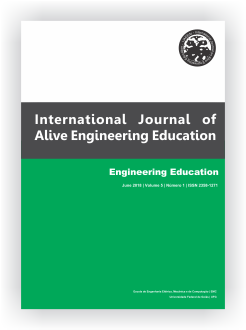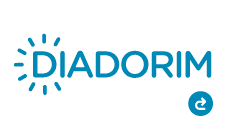Case Study: Electrical Engineering Introduction Course Using an Integrated Approach via Group Work Viability Projects
DOI:
https://doi.org/10.5216/ijaeedu.v5.62496Resumo
This paper discuss an innovative teaching methodology applied in a University sited in Minas Gerais, Brazil. The main goal is to reduce the dropout rate in Engineering Courses. The Federal University of Itajuba (UNIFEI) others freshmen students a new perspective about the Electrical Engineering course, showing them the vast possibilities it might lead them. For that, the University uses the course called Introduction to Electrical Engineering, based in the formation of groups focused in the study of the viability of Renewable Energy Sources projects. Diferently from the traditional method, where the students are merely recipients meant to be alled by the professor1 , the idea is to concede a chance for the pupils, allowing them to guide their researches and activities based on their needs. In this context, a group called Photovoltaic Application in Needy Communities
(PANC), from the 2015 class, reached at the end of the period the implantation of the group's objective: a solar system in a Basic Health Center in Itajuba (MG). The methods applied by the group are discussed in this paper.
Downloads
Publicado
Edição
Seção
Licença
Ao submeter eletronicamente um artigo na Revista Eletrônica Engenharia Viva, o responsável pela submissão:
a) Declara que o documento em questão é um trabalho original, e que detém prerrogativa de conceder os direitos contidos nesta licença. Declara também que a entrega do documento não infringe, tanto quanto lhe é possível saber, os direitos de qualquer outra pessoa ou entidade.
b) Se o documento em questão contém material do qual não detém os direitos autorais, declara ter obtido autorização do detentor dos direitos autorais para conceder à Universidade Federal de Goiás os direitos requeridos por esta licença, e que esse material cujos direitos são de terceiros está claramente identificado e reconhecido no texto ou conteúdo do documento em questão.
c) Declara ainda que qualquer pessoa nomeada como autor ou co-autor do documento tem consciência do fato e concorda em ser assim nomeado.
Termo de Autorização
Na qualidade de responsável pela submissão do documento, autorizo a Escola de Engenharia Elétrica, Mecânica e de Computação da Universidade Federal de Goiás (EMC/UFG) a disponibilizar a obra, gratuitamente, por meio do Sistema Eletrônico de Editoração de Revistas da UFG (SEER/UFG) ou na forma impressa, sem ressarcimento dos direitos autorais, de acordo com a Lei nº 9610/98. Fica permitido, a leitura, a impressão e/ou download, a título de divulgação da produção científica brasileira. Qualquer uso da obra que não o autorizado sob esta licença ou pela legislação autoral é proibido.



